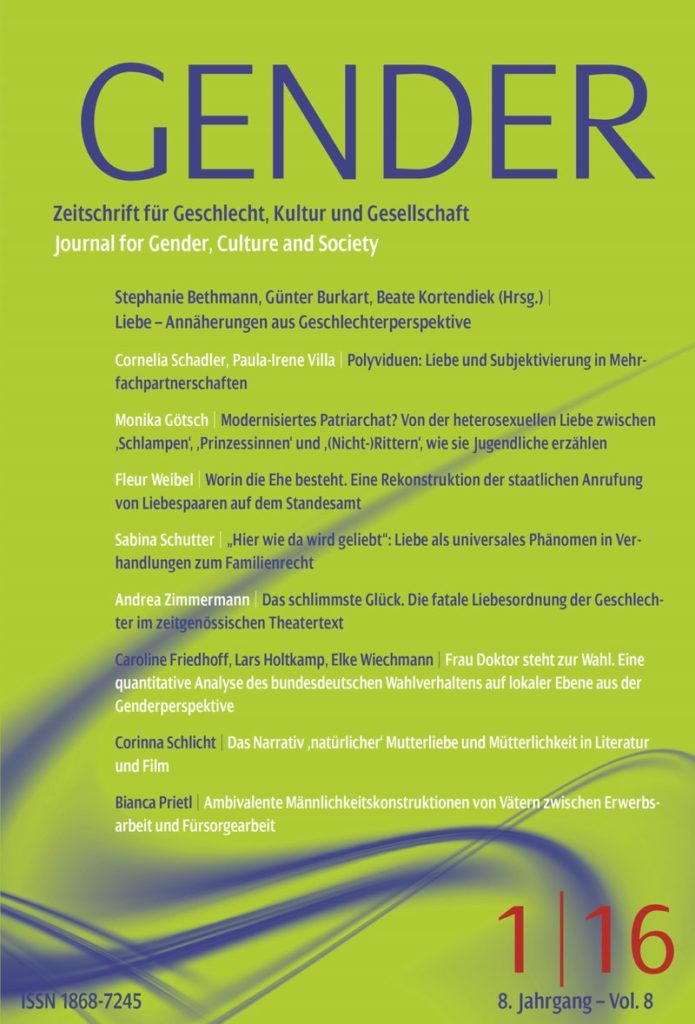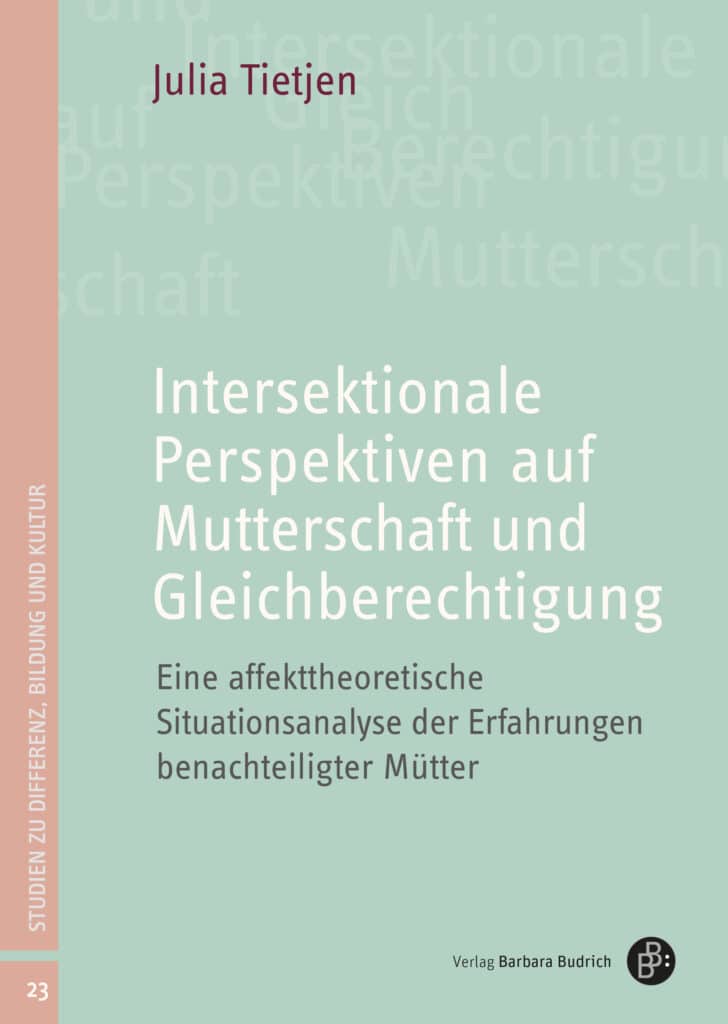Informationen zum Buch
Home » Publications » Education, Work, and Family Events in Women’s Lives
Education, Work, and Family Events in Women’s Lives
Long-Term Developments and Recent Trends in East and West Germany
Erscheinungsdatum : 07.03.2022
23,99 € - 29,00 €
Beschreibung
This book investigates how educational expansion, the trend towards the service society and the German unification affect East and West German women’s life courses and family lives. It focuses on educational enrolment, educational attainment level, labour force participation, career resources, social origin, the educational match among partners as well as historical periods and examines their consequences on women’s entry into first motherhood as well as partnership formation and dissolution processes. Using longitudinal data from the National Educational Panel Study (NEPS),multivariate methods such as event history analysis were applied. The findings suggest that women’s entry into motherhood during full-time education is highly dependent on women’s age, social origin and the policy measures in a country.
Furthermore, women’s education has mainly an effect on the time structure of entry into first motherhood over the life course of differently qualified women but not on their final decision to enter into motherhood. This book also looks into women’s partnership formation and dissolution processes. East and West German women do only differ slightly with regard to these transitions. Based on a new theoretical model on educational assortative mating and divorce, this book is able to show that there are not only benefits from division of work but also benefits from communication within married couples. Women’s upward marriages are the most stable ones, with homogamous marriages ranking second, followed by married down marriages being the least stable ones.
Table of contents + reading sample
The author:
Dr. Gwendolin Josephine Blossfeld is a postdoctoral fellow at Otto-Friedrich-Universität Bamberg, Germany.
Download for free: publicity leaflet (pdf)
The target group:
Lecturers and researchers of sociology and gender studies.
Zusätzliche Informationen
| Publisher | |
|---|---|
| ISBN | 978-3-96665-047-2 |
| eISBN | 978-3-96665-951-2 |
| Format | 14,8 x 21 cm |
| Scope | 223 |
| Year of publication | 2022 |
| Date of publication | 07.03.2022 |
| Edition | 1. |
| Language | Englisch |
Autor*innen
Beschreibung
Beschreibung
This book investigates how educational expansion, the trend towards the service society and the German unification affect East and West German women’s life courses and family lives. It focuses on educational enrolment, educational attainment level, labour force participation, career resources, social origin, the educational match among partners as well as historical periods and examines their consequences on women’s entry into first motherhood as well as partnership formation and dissolution processes. Using longitudinal data from the National Educational Panel Study (NEPS),multivariate methods such as event history analysis were applied. The findings suggest that women’s entry into motherhood during full-time education is highly dependent on women’s age, social origin and the policy measures in a country.
Furthermore, women’s education has mainly an effect on the time structure of entry into first motherhood over the life course of differently qualified women but not on their final decision to enter into motherhood. This book also looks into women’s partnership formation and dissolution processes. East and West German women do only differ slightly with regard to these transitions. Based on a new theoretical model on educational assortative mating and divorce, this book is able to show that there are not only benefits from division of work but also benefits from communication within married couples. Women’s upward marriages are the most stable ones, with homogamous marriages ranking second, followed by married down marriages being the least stable ones.
Table of contents + reading sample
The author:
Dr. Gwendolin Josephine Blossfeld is a postdoctoral fellow at Otto-Friedrich-Universität Bamberg, Germany.
Download for free: publicity leaflet (pdf)
The target group:
Lecturers and researchers of sociology and gender studies.
Bibliography
Zusätzliche Informationen
| Publisher | |
|---|---|
| ISBN | 978-3-96665-047-2 |
| eISBN | 978-3-96665-951-2 |
| Format | 14,8 x 21 cm |
| Scope | 223 |
| Year of publication | 2022 |
| Date of publication | 07.03.2022 |
| Edition | 1. |
| Language | Englisch |
Produktsicherheit
Bewertungen (0)
Bewertungen
Es gibt noch keine Bewertungen.









Bewertungen
Es gibt noch keine Bewertungen.